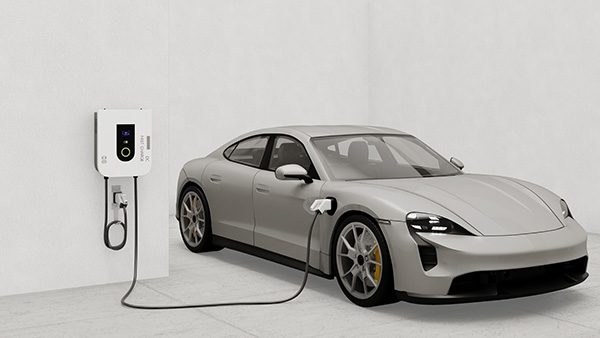
Electric vehicles (EVs) have been gaining massive popularity over the last few years, with more drivers making the switch from traditional gas-powered cars to greener alternatives. With advancements in technology, growing infrastructure, and environmental benefits, EVs are a compelling option for anyone looking to reduce their carbon footprint while enjoying the latest automotive innovations. But before you jump into buying one, there are a few important things you need to know.
1. Range Anxiety Is Becoming a Thing of the Past
One of the main concerns for potential EV buyers is range anxiety or the fear that the vehicle's battery will run out before reaching a charging station. However, modern electric cars have come a long way in addressing this issue. Many EVs now offer ranges well over 200 miles on a single charge, with some premium models reaching over 300 miles. While the range might still be a consideration for long-distance travelers, the growing availability of charging stations has eased these worries significantly.
2. Charging Infrastructure Is Expanding Rapidly
Speaking of charging stations, the infrastructure to support EVs is expanding at a fast pace. In urban areas and along major highways, charging stations are becoming increasingly common. Charging networks such as Tesla Superchargers and other public charging stations are making it easier for drivers to charge their vehicles on the go. If you live in a densely populated area, finding a nearby charging point might be easier than you think.
Tip: Installing a home charging station can also provide convenience, especially if you’re looking to charge your car overnight.
3. EVs Are Cheaper to Maintain
Electric vehicles have fewer moving parts compared to traditional gas-powered cars. This means there’s less that can go wrong, resulting in lower maintenance costs. EVs don’t require oil changes, and with regenerative braking systems, even brake wear is significantly reduced. You'll still need to maintain tires and other standard components, but overall, the cost of ownership for an electric vehicle can be much lower in the long run.
4. Tax Incentives and Rebates Make EVs More Affordable
Governments around the world are encouraging people to switch to electric vehicles by offering tax credits and rebates. In the United States, federal tax incentives can lower the cost of a new EV by up to $7,500, depending on the make and model. Many states also offer additional incentives that further reduce the cost of purchasing an electric vehicle.
Note: Incentives vary based on where you live, so be sure to research local programs that can help make your EV purchase more affordable.
5. EV Batteries Are Built to Last
One of the most common questions about electric vehicles is about battery life. EV batteries are designed to last for years, with most manufacturers offering warranties that cover battery life for up to 8 years or 100,000 miles. Although battery degradation can occur over time, it’s generally slow and not something most drivers will notice in the short term.
Bonus: Many companies are also developing recycling programs for EV batteries to reduce waste and promote sustainability.
6. Charging Speed Depends on the Charger You Use
Charging an electric vehicle can take anywhere from 30 minutes to 12 hours, depending on the type of charger you use. There are three types of chargers:
- Level 1 (Standard Home Outlet): Provides a slow charge, usually taking up to 12 hours for a full charge.
- Level 2 (240-Volt Outlet): This is the most common home charging option and takes about 4-6 hours for a full charge.
- Level 3 (DC Fast Charging): Often found at public charging stations, these can charge an EV to 80% in around 30 minutes.
7. Electric Vehicles Are Great for the Environment
EVs produce zero tailpipe emissions, making them a much cleaner option for the environment compared to gasoline-powered vehicles. When paired with renewable energy sources like wind or solar, they can significantly reduce your carbon footprint. Additionally, many governments are pushing for cleaner energy grids, which means EVs will only become greener as time goes on.
8. EVs Offer Impressive Performance
If you’re a fan of speed and acceleration, you’ll be pleased to know that electric vehicles offer incredible performance. Unlike gas engines, which take time to build up torque, electric motors provide instant torque, allowing for quicker acceleration and a smoother driving experience. Some high-end EVs, like the Tesla Model S, can go from 0 to 60 mph in under 3 seconds, rivaling some of the fastest sports cars.
9. Cold Weather Can Affect Range
It’s important to note that extreme weather conditions, particularly cold temperatures, can impact the range of an electric vehicle. Cold weather can slow down the chemical reactions in the battery, reducing its efficiency. However, many EVs come equipped with battery thermal management systems that help maintain performance in various temperatures.
10. Not All EVs Are the Same
There’s a wide range of electric vehicles available today, from compact city cars to luxury SUVs. When choosing an EV, consider your lifestyle, driving habits, and range needs. Whether you’re looking for a daily commuter, a family car, or a performance vehicle, there’s likely an electric vehicle that suits your needs.
Ready to make the switch to an electric vehicle? At Elite Auto Repair, we can help you keep your EV in peak condition with expert maintenance services. Call us today to book an appointment!